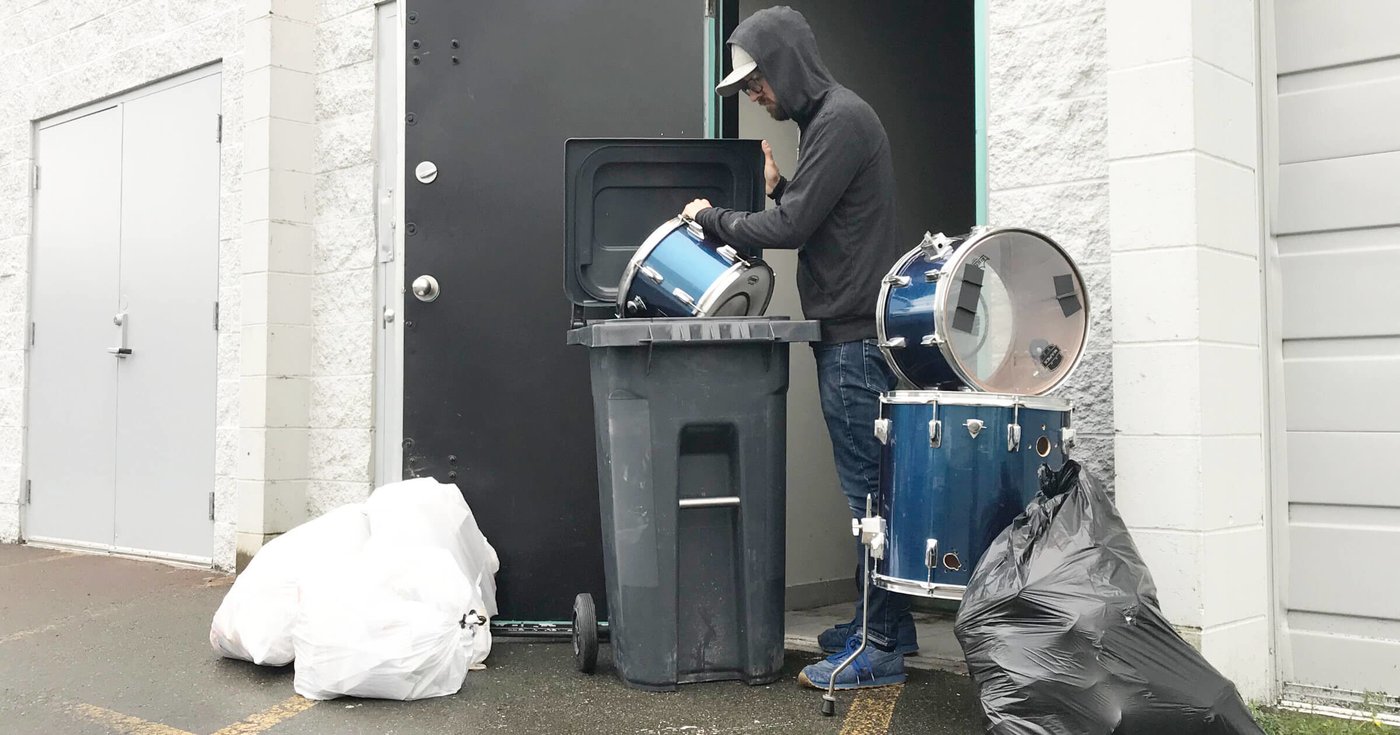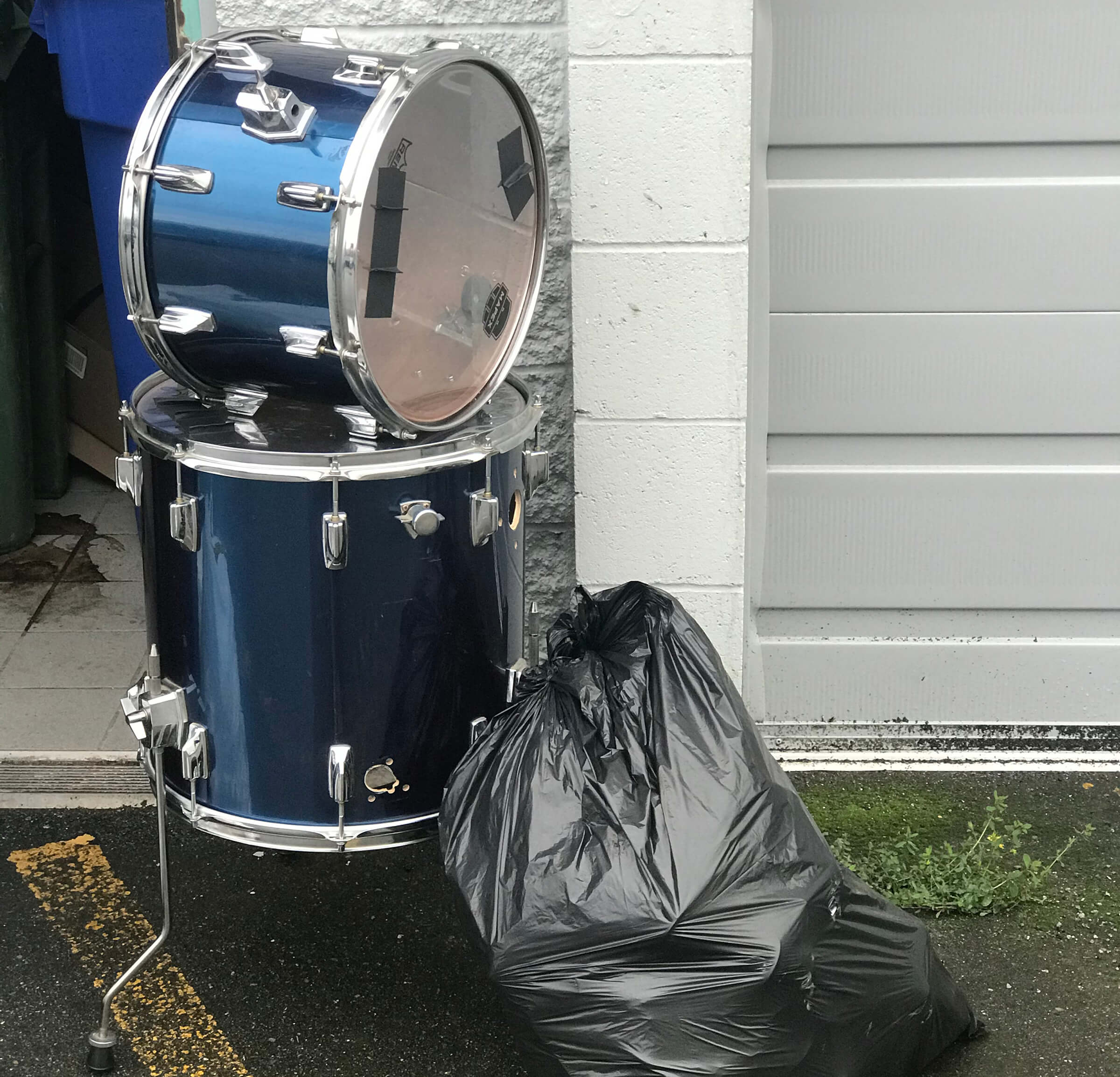
It’s a curse that has forever plagued bands: “There aren’t enough drummers.” And it makes sense: we usually need to have a practice space, money to invest in equipment, and a vehicle for transportation. For these reasons, are there fewer drummers to begin with? Or are musicians quitting the drums more than they quit other instruments?
With it being so physically demanding, it’s no surprise that playing drums isn’t always a lifelong endeavor. Some people pick it up and stop a few months later. Others play for years before they close the rhythmic chapter of their lives.
There are many reasons why drummers quit:
It doesn’t take a rocket scientist to figure out that physical or mental health concerns can force a drummer to bow out. For someone with depression, practicing drums every day (or at all) might be out of the question. For a drummer with a physical injury, it may be impossible to achieve the motion or comfort you need to play properly.
Health problems are especially prevalent in full-time working musicians. According to one German study, over two thirds of professional musicians live with chronic pain – which means that even after months or years of injury, many people keep playing through the pain, which could result in permanent damage and an early end to their career.
While some health problems understandably mean quitting the drums, many conditions should only result in a temporary setback. There may still be time to prevent hearing loss. Even a common drumming injury like carpal tunnel syndrome can be fixed if you catch it early enough. So if you’re worried about an injury or health problem threatening your love of drumming, talk to a doctor and make sure it’s definitely worth putting down the sticks for good.
Many of the health problems that keep drummers off the kit come up with age. It gets harder to heal from physical injuries as time goes on. Sadly, arthritis, hearing loss, memory loss, and other age-related conditions can permanently debilitate even the most experienced drummers. And for some people, it can also get mentally exhausting to play for 50+ years. Neil Peart retired from drumming in his mid-60s. Phil Collins’ injuries added up over time, eventually forcing him off the drums. Lars Ulrich still tours, but he suffers from hearing loss.
While it’s inevitable that most drummers will have to retire at some point, you can take steps to help stave off some effects of aging. Stay active, eat well, use good drum technique, and go to the doctor as soon as you notice symptoms of a problem.
Many drummers quit because they don’t have time to play anymore. Some say that this isn’t an excuse, and that we make time for our priorities when we really want to. If your priority has shifted from drums to something else (work, family, a new hobby), there’s no shame in packing up your instrument. Maybe you’ll come back to it one day, or maybe you’ll be perfectly happy with drumming being a part of your past.
If you want to make more time to play drums, make it a part of your schedule. Even 15-30 minutes of practice a day is better than nothing.

Are you a chronic procrastinator? Do you keep telling yourself you’ll play tomorrow, but one day off turns into months or years? Sometimes we just don’t feel motivated to drum, and time gets away from us. It’s normal to want to take breaks. But eventually you might realize that you haven’t played in over a year or longer. It can be hard to get back into playing when you’ve taken time off, especially if you’re feeling rusty.
Some drummers are unmotivated because they’re bored; they’ve been playing the same beats and styles for years and don’t know where to go next. Other drummers get down on themselves because they aren’t progressing as quickly as they feel they should.
New players might give up when they realize it’s taking too much work to develop limb coordination and independence and think they’ll never get the hang of it. They might have a drum teacher they don’t like. And unfortunately, some players feel like someone ‘forced’ them to play drums and they never had the passion to begin with.
If you’re feeling guilty about not being motivated, identify why you’ve lost your mojo and try to get that fire blazing again.
Guitarists have it easy. They don’t need to haul 10+ pieces of gear to a gig or a campfire jam. They can easily put on headphones and practice at home. While drummers can buy electronic kits, the tapping can still be heard through thin walls sometimes. And acoustic sets are a no-go for almost anyone with neighbors (read this article if you want to know how to compromise).
Some drummers might even feel like quitting because they don’t find their current setup inspiring. Great-sounding drums are expensive, and ‘starving artist’ is a popular saying for a reason. When your hands say ‘go’ but your wallet says ‘no’…you’re in trouble. If you live in a city with local hourly rehearsal spaces, you could book a few sessions to use the drums there, and use a practice pad to stay limber at home.
If you’re thinking of quitting drums, it’s okay – sometimes it’s just not possible to keep going. You might have other things to take care of right now and there’s no need to feel guilty about it. But if there’s any way to make it a temporary hiatus, hopefully you’ll be ready to pick up right where you left off (or close to it).
The drums will always be there for you. They will never judge you for taking a break. And they will be patient while you get reacquainted, step by step, at whatever commitment level you’re comfortable with.
If you haven’t played in a while and are concerned that it won’t be easy to make your big return to the throne, check out this short video with 5 tips to help you get back into drumming after a long break:
To stay disciplined, find an instructor (local or online), decide exactly how often and when you’ll be able to practice, and go through some basic exercises (see above video) to get back into the swing of things. And one great way to rekindle your passion is to play with other musicians.
Just remember: it’s easier than you think to come back to the kit. Once a drummer, always a drummer.
Samantha Landa currently drums with Conquer Divide and has been featured by outlets such as Sick Drummer Magazine and DRUM! Magazine. Sam proudly endorses Mapex Drums, Sabian Cymbals, Evans Drumheads and Los Cabos Drumsticks.


By signing up you’ll also receive our ongoing free lessons and special offers. Don’t worry, we value your privacy and you can unsubscribe at any time.
We use cookies for traffic data and advertising. Cookie Policy »